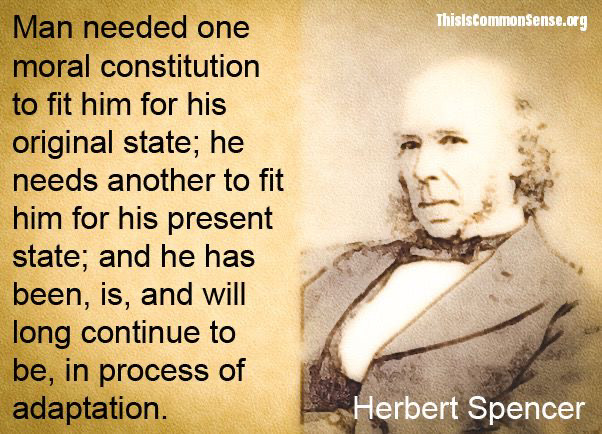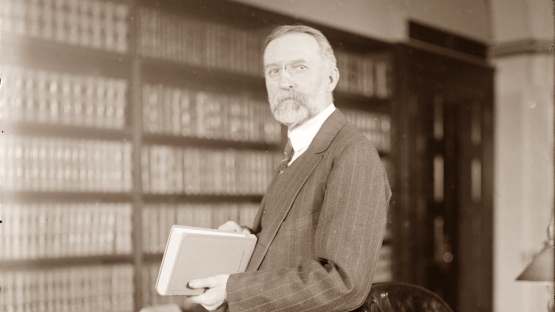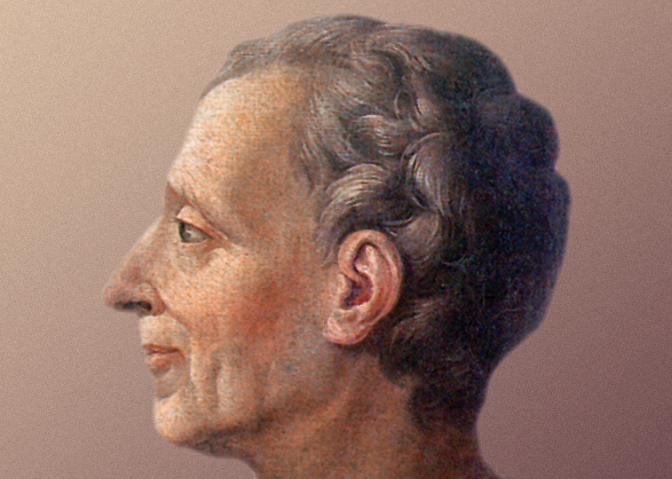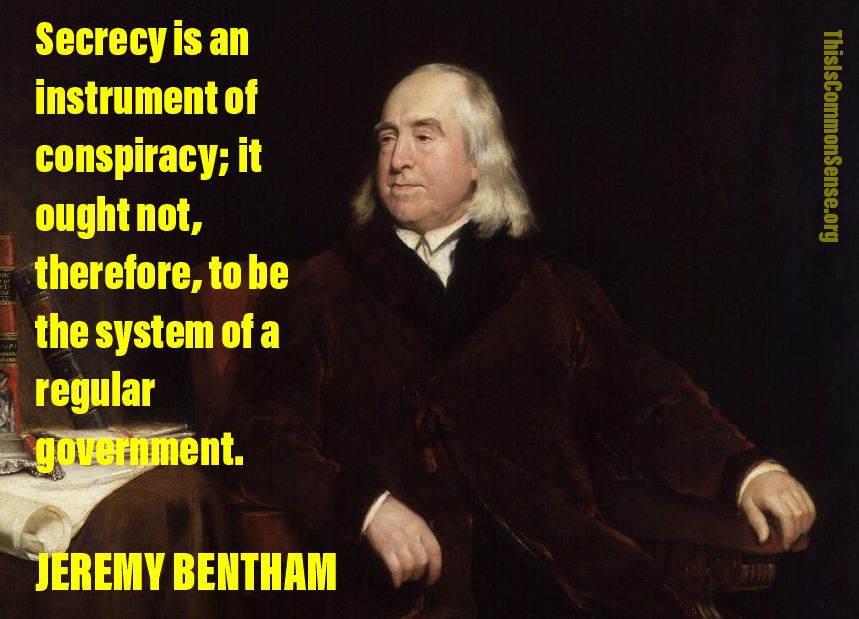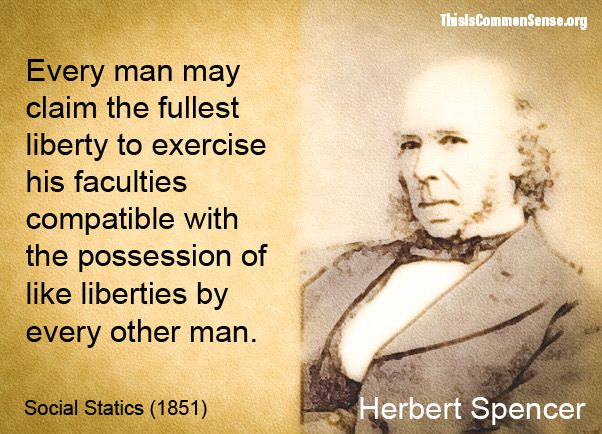Man needed one moral constitution to fit him for his original state; he needs another to fit him for his present state; and he has been, is, and will long continue to be, in process of adaptation.
Herbert Spencer, Social Statics: or, The Conditions essential to Happiness specified, and the First of them Developed, (London: John Chapman, 1851), Pt. I, Ch. 2 : “The Evanescence of Evil,” from the concluding paragraph.
Categories
Herbert Spencer
